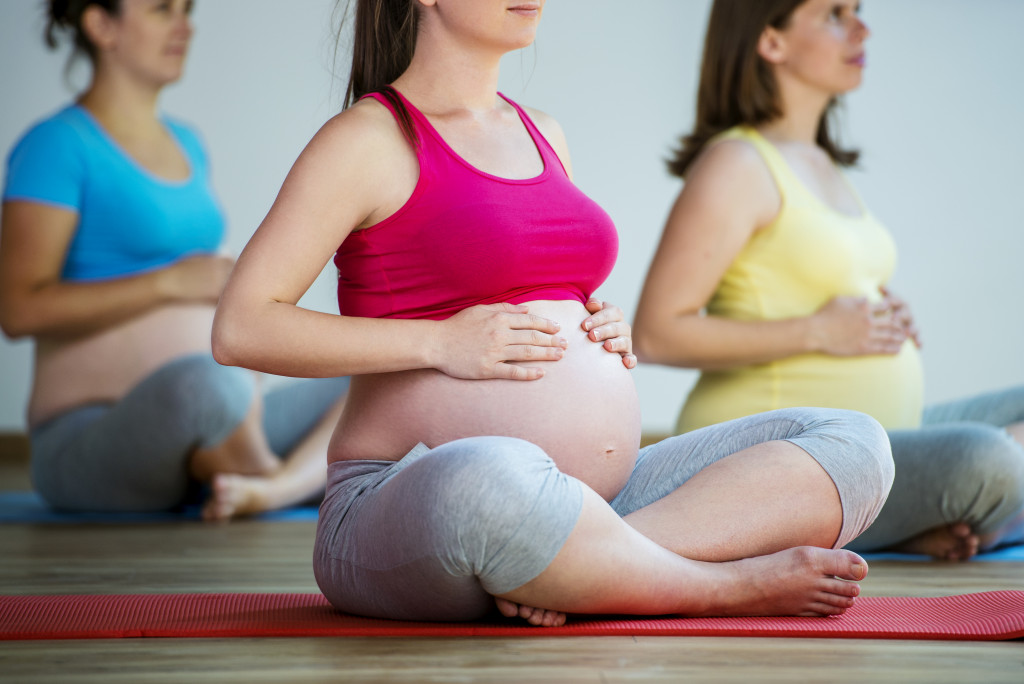As a pregnant woman, you have to be careful about the kind of physical activity that you do. But that doesn’t mean you have to stop moving altogether. Keeping yourself active and moving is good for you and your baby.
Here are some tips on how you can keep moving as a pregnant woman:
1. Talk to your doctor about what types of exercise are safe for you during pregnancy
Before you start or continue any kind of physical activity, it’s essential to talk to your doctor about what is safe for you to do. They will be able to give you specific advice based on your health and the stage of your pregnancy. Some exercises may be off-limits, or you may need to modify how you do them.

Your doctor may also recommend avoiding exercise altogether if you have certain medical conditions, such as heart disease or pre-eclampsia. These conditions can make exercise unsafe, so it’s crucial to get the green light from your doctor before you start.
2. Choose low-impact activities
It is essential to start slow when you first begin to exercise during pregnancy. Low-impact activities are a great way to get your body moving without putting too much strain on it. If you were active before you became pregnant, you might be able to continue with some high-impact activities like running or aerobics. Still, it’s essential to listen to your body and take things down a notch if you feel tired or uncomfortable.
Some great low-impact activities for pregnant women include walking, swimming, prenatal yoga, and pregnancy-specific exercise classes.
3. Stop if you feel pain or discomfort
Exercise is supposed to make you feel good, so it’s time to stop if you start to feel pain or discomfort. Pregnancy is not the time to push through pain or try to tough it out. If something doesn’t feel right, stop what you’re doing and rest.
You should consult with your doctor if you’re experiencing pain during pregnancy, as they can help you determine whether or not it is safe to continue exercising. If you feel bodily pains specifically from the exercise, you may also consult with a professional chiropractor who is experienced in helping pregnant women.
4. Drink plenty of water
Staying hydrated is essential for everyone, but it’s vital for pregnant women. When exercising, make sure to drink plenty of water to keep your body temperature regulated and avoid dehydration. This should be easy to do if you’re drinking water regularly throughout the day anyway.
It’s also important to drink water before, during, and after exercise to stay hydrated. If you’re feeling thirsty, that’s a sign that you’re already dehydrated, so make sure to drink up.

5. Wear comfortable, supportive clothing
Your clothing will also need to change as your body changes during pregnancy. Especially when engaging in exercise or other daily activities, it’s essential to wear comfortable clothing to support your growing body. This may mean investing in some new workout clothes or maternity-specific clothing.
Don’t forget to wear a well-fitting, supportive bra to help with any breast pain or discomfort. You may even want to look into a sports bra specifically designed for pregnant women. You can usually find these at maternity stores or online.
6. Avoid overheating
Overheating is dangerous for both you and your baby, so it’s essential to avoid it. When exercising, pay attention to how your body is feeling and take breaks as needed to cool down. It’s also a good idea to exercise in a cool or air-conditioned room and wear light, breathable clothing.
You should always practice cool down exercises instead of immediately stopping the activity. This is to help lower your body temperature gradually. Avoid saunas, steam rooms, or hot tubs during pregnancy, as they can cause you to overheat.
7. Practice safe positions during exercise
As your pregnancy progresses, you’ll want to be mindful of the positions you put your body in during exercise. Some positions may not be safe for you or your baby as your belly gets bigger.
For example, lying flat on your back for an extended time can put too much pressure on your vena cava, a large vein that carries blood from your lower body to your heart. This can cause dizziness, shortness of breath, and even fainting.
Another position to avoid is lying on your stomach. Instead, focus on exercises that keep you upright and don’t put too much pressure on your belly. Find comfortable positions for you and listen to your body if something doesn’t feel right.
Pregnancy is a beautiful yet challenging time in a woman’s life. There are many things to think about and prepare for, but don’t forget to take care of yourself. Exercise is a great way to stay healthy during pregnancy, but it’s essential to do it safely. By following these tips, you can stay safe and healthy while still getting a good workout.
